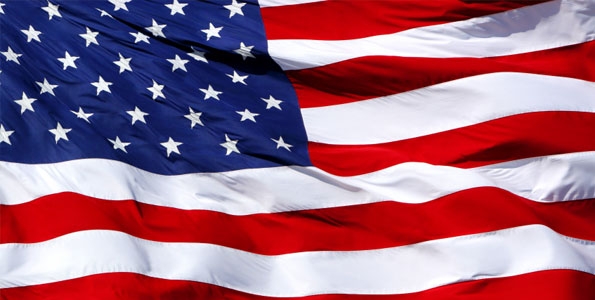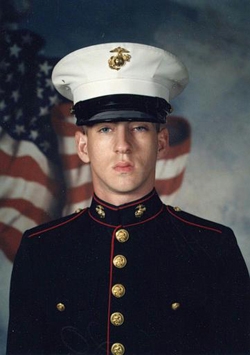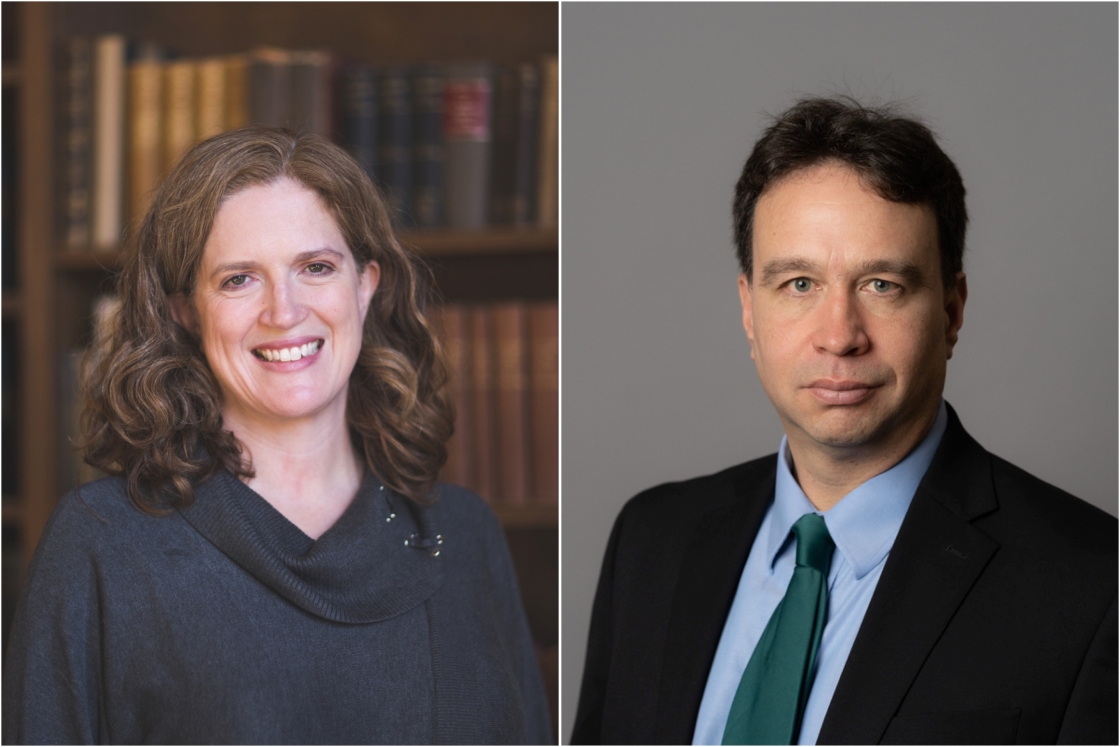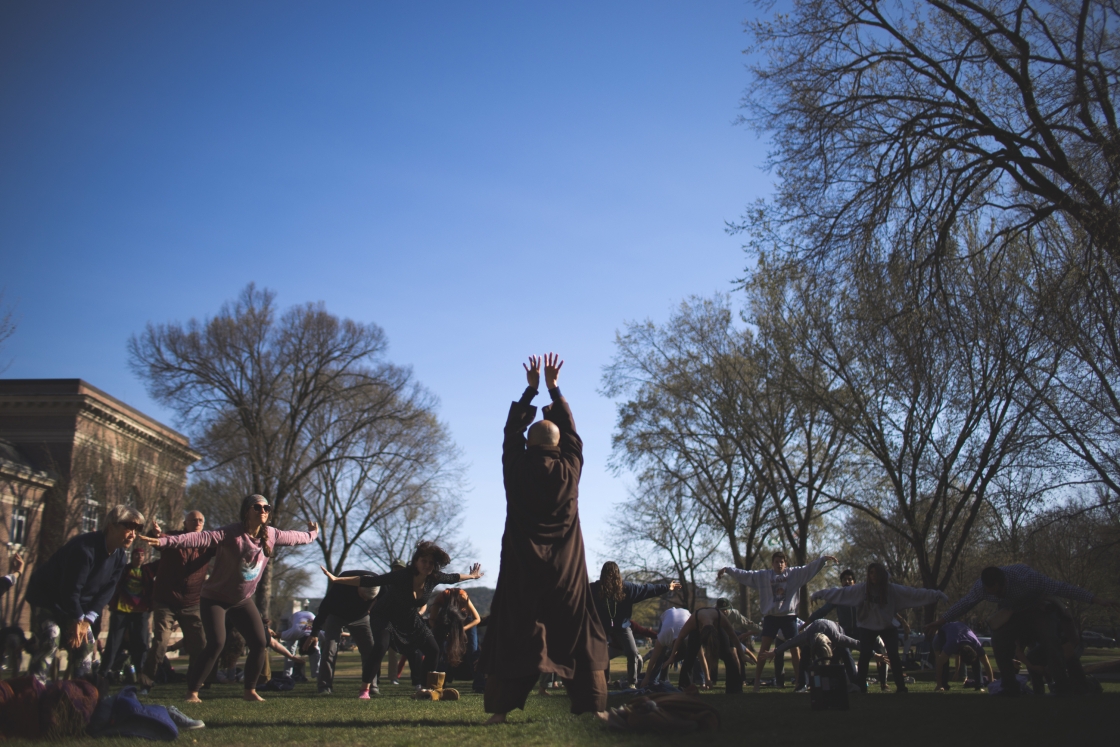Giving thanks on Veterans Day for the sacrifices military men and women make is not an abstract exercise for Facilities Operations and Management Electrical Supervisor Scott Holmes, who lost his son Lance Cpl. Jeffery Holmes on Thanksgiving Day in 2004, when the 20-year-old Marine was killed by insurgents in Fallujah, Iraq.

Holmes, and his other son, Cory Holmes, a custodian at Dartmouth, are pleased that the Dartmouth community will recognize those who have served their country, on November 11, in a day of special events commemorating Veterans Day.
“It’s great we’re doing this so that people today can understand the sacrifices, and what veterans are all about,” says Scott Holmes. “It’s an honor to be on the committee, so that we can get this started. Hopefully it will continue every year.”
That’s the hope, too, of the other members of the Veterans Day committee, who have been planning the day’s events for nine months. The schedule includes a remembrance breakfast, and afternoon lecture sponsored by the Nelson A. Rockefeller Center, both featuring President Emeritus James Wright; a reception at the Tuck School of Business; a flag ceremony on the Green; and a moment of silence at 11 a.m.—the hour that in 1918 marked the signing of the armistice that ended World War I. The moment will be observed at Dartmouth by the ringing of the Baker Tower bells.
“Today, fewer Americans serve in the armed forces and fewer sacrifice in our country’s wars. Veterans Day should be a day for all of us to remember that which we need to remember every day: We have an obligation to those who serve on our behalf,” says Wright, the Eleazar Wheelock Professor of History.
A Marine Corps veteran, Wright has received national recognition for his work with wounded service members, including encouraging them to go to college. He has been visiting wounded warriors since 2005 and helped establish college counseling services at a number of military medical centers.
Dartmouth’s Veterans Day events are “a wonderful way to say thanks for the sacrifices that all of our servicemen and women have made for our freedom. It’s a pretty significant contribution,” says Kerry Jones, director of workforce planning and organizational effectiveness in the Office of Human Resources, who co-chairs the Veterans Day committee with Executive Vice President and Chief Financial Officer Steven Kadish.
“We extend our deep gratitude to the students, faculty, and staff at Dartmouth who have served our nation in the Army, Navy, Air Force, Marines, and Coast Guard, and we look forward to shining a spotlight on their commitment,” says President Jim Yong Kim.

Other members of the Veterans Day committee, all of whom have connections to the military, are: Dr. Jim Geiling, a 25-year veteran of the Army Medical Corps who is currently assistant professor of medicine at Dartmouth Medical School and chief of medicine at the Veterans Affairs Medical Center in White River Junction; Human Resources Executive Director Lynda Baker; Lisa Celone, chief operating officer of Campus Planning and Facilities; Wayne Claflin, a painter in Facilities Operations and Management and member of the Vermont State Guard; Ken Blewett and Justin McFarlin, both Tuck ’12s, and Army veterans; Michael Burbank ’13; Army veteran Ryan Dean ’11; and Terry Russell ’63, a managing director of the Dartmouth College Fund and a Navy veteran who graduated from Dartmouth’s Navy ROTC program.
Scott Holmes, who served in the Air Force during the Vietnam War, says he’s glad to see a change in society’s attitudes toward veterans.
“When I got out of the service, you didn’t even want to be known as a service member. It’s nice that people are starting to wake up to the sacrifices that have been made,” he says.
Commemorating Veterans Day is important not just for veterans, said Blewett, who was a cavalry scout in the Army for five years, including 15 months in Baghdad, following his 2005 graduation from the U.S. Military Academy at West Point.
“Veterans are in every community and recognizing their sacrifices is meaningful to both the veteran and, I believe, the community,” he says.
Blewett is a member of the Tuck Armed Forces Alumni Association, whose members are hosting a reception to recognize veterans on November 10.
Veterans Day activities also include an opportunity to donate time and money to organizations that support veterans. The College-sponsored “List-to-Assist” campaign allows employees to sign up online to help the Disabled American Veterans, American Legion, U.S. Department of Veterans Affairs, Veterans of Foreign Wars, or an organization of one’s choice, including the Jeffery Holmes Scholarship Fund, which provides scholarships for students from Holmes’s alma mater, Hartford High School, in White River Junction, Vt.
In addition to being home to employees and students who are veterans, Dartmouth also educates those who will become veterans, among them, members of the Lone Pine Battalion, Dartmouth’s U.S. Army Reserve Officer Training Corps (ROTC).
“Dartmouth is proud to be educating future military leaders through our ROTC program,” says President Kim.
The program, run in conjunction with Norwich University in Northfield, Vt., began in 1951 and has been in continuous operation since 1985. ROTC students are commissioned as second lieutenants in the Army upon graduation. Other Dartmouth students may commission as Marine officers after participating in the Platoon Leaders Class program held in the summer at Quantico, Va.
Dartmouth ROTC member Aaron Cappelli ’12 said he’s appreciative of the Veterans Day events.
“Dartmouth’s inaugural formal recognition of this day is important especially with the growing numbers of veterans from the current wars who have become an integral part of the student body. While most of these students go through a normal Dartmouth day like a normal Dartmouth student, they still deserve to be recognized and honored for their past service and sacrifice,” he says. “I’m glad that Dartmouth has made this recognition a new part of its tradition.”
Another feature of Dartmouth’s commemoration is a slide show picturing community members who are veterans, and also veterans who are family members of college employees. Holmes said he’s been struck to discover how many veterans work at Dartmouth, including six of the nine people he supervises.
“There’s a lot of people I didn’t recognize were veterans. They just go about their business, and do their jobs,” he says.
Holmes suggests that if people see a serviceman or woman in uniform, they take the time to shake their hand and thank them for their service.
“It’s a nice gesture,” he says.

